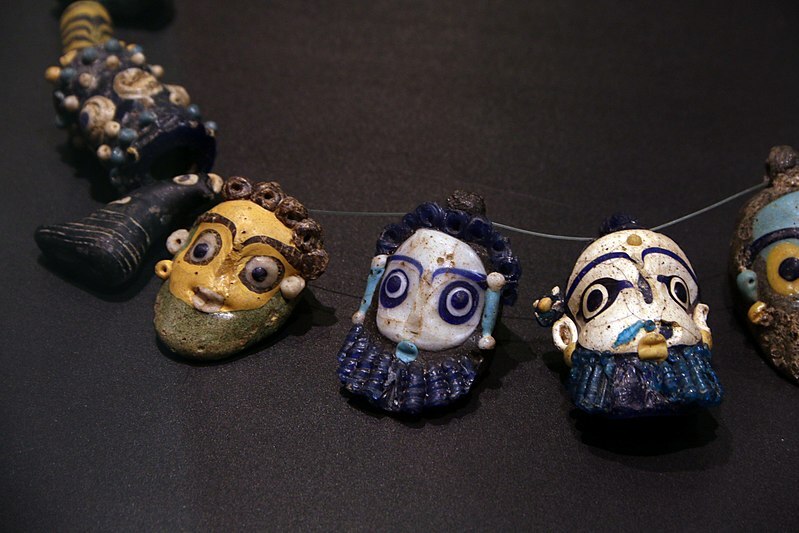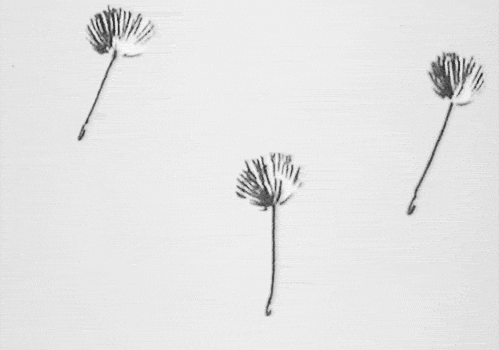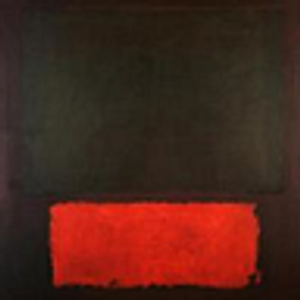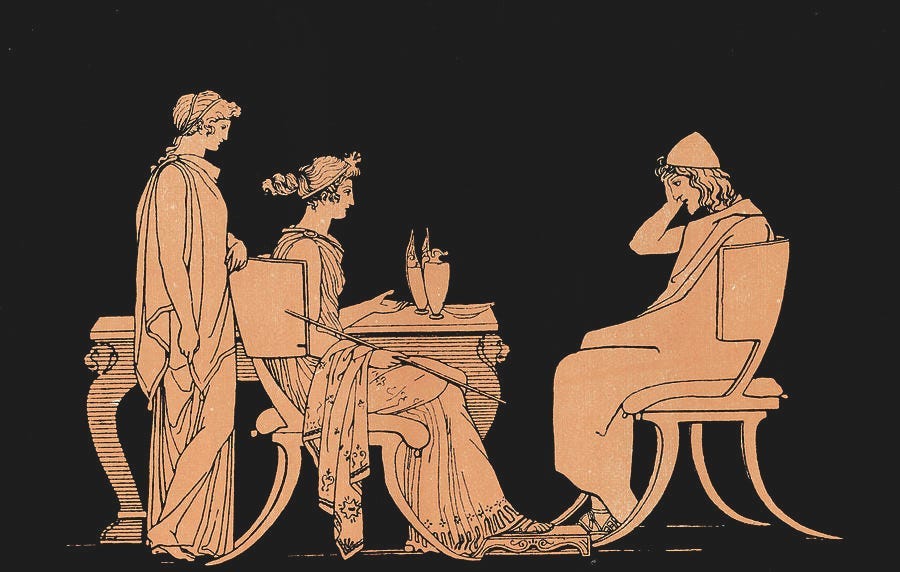 Phoenician faces - Glass from Olbia (400 BC) - The bold pools of color and detailed hair give a Greek impression.
Phoenician faces - Glass from Olbia (400 BC) - The bold pools of color and detailed hair give a Greek impression.

Betwixt whom mutual gifts were giv’n, My grandsire gave to thine
A girdle of Phœnician work, impurpl’d wondrous fine,
Thine gave a two-neck’d jug of gold, which, though I use not here,
Yet still it is my gem at home. But, if our fathers were
Familiar, or each other knew, I know not, since my sire
Left me a child, at siege of Thebes, where he left his life’s fire.
But let us prove our grandsires’ sons, and be each other’s guests.
To Lycia when I come, do thou receive thy friend with feasts;
Peloponnesus, with the like, shall thy wish’d presence greet.
Mean space, shun we each other here, though in the press we meet.
There are enow of Troy beside, and men enow renown’d,
To right my pow’rs, whomever heav’n shall let my lance confound,
So are there of the Greeks for thee; kill who thou canst. And now,
For sign of amity ’twixt us, and that all these may know
We glory in th’ hospitious rites our grandsires did commend,
Change we our arms before them all.” From horse then both descend,
Join hands, give faith, and take; and then did Jupiter elate[3]
The mind of Glaucus, who, to show his rev’rence to the state
Of virtue in his grandsire’s heart, and gratulate beside
The offer of so great a friend, exchang’d in that good pride,
Curets of gold for those of brass, that did on Diomed shine,
One of a hundred oxen’s price, the other but of nine.
By this, had Hector reach’d the ports of Scæa, and the tow’rs.
About him flock’d the wives of Troy, the children, paramours,
Inquiring how their husbands did, their fathers, brothers, loves.
He stood not then to answer them, but said: “It now behoves
Ye should all go t’ implore the aid of heav’n, in a distress
Of great effect, and imminent.” Then hasted he access
To Priam’s goodly builded court, which round about was run
With walking porches, galleries, to keep off rain and sun.
Within, of one side, on a rew, of sundry-colour’d stones,
Fifty fair lodgings were built out, for Priam’s fifty sons,
And for as fair sort of their wives; and, in the opposite view,
Twelve lodgings of like stone, like height, were likewise built arew,
Where, with their fair and virtuous wives, twelve princes, sons in law
To honourable Priam, lay. And here met Hecuba,
The loving mother, her great son; and with her needs must be
The fairest of her female race, the bright Laodice.
The queen gript hard her Hector’s hand, and said: “O worthiest son,
Why leav’st thou field? Is’t not because the curséd nation
Afflict our countrymen and friends? They are their moans that move
Thy mind to come and lift thy hands, in his high tow’r, to Jove.
But stay a little, that myself may fetch our sweetest wine
To offer first to Jupiter, then that these joints of thine
May be refresh’d; for, woe is me, how thou art toil’d and spent!
Thou for our city’s gen’ral state, thou for our friends far sent,
Must now the press of fight endure; now solitude, to call
Upon the name of Jupiter; thou only for us all.
But wine will something comfort thee; for to a man dismay’d
With careful spirits, or too much with labour overlaid,
Wine brings much rescue, strength’ning much the body and the mind.”
The great helm-mover thus receiv’d the auth’ress of his kind:
“My royal mother, bring no wine; lest rather it impair
Than help my strength, and make my mind forgetful of th’ affair
Committed to it; and (to pour it out in sacrifice)
I fear with unwash’d hands to serve the pure-liv’d Deities.
Nor is it lawful, thus imbru’d with blood and dust, to prove
The will of heav’n, or offer vows to cloud-compelling Jove.
I only come to use your pains (assembling other dames,
Matrons, and women honour’d most, with high and virtuous names)
With wine and odours, and a robe most ample, most of price,
And which is dearest in your love, to offer sacrifice
In Pallas’ temple; and to put the precious robe ye bear.
On her Palladium; vowing all, twelve oxen-of-a-year,
Whose necks were never wrung with yoke, shall pay her grace their lives,
If she will pity our sieg’d town; pity ourselves, our wives;
Pity our children; and remove, from sacred Ilion,
The dreadful soldier Diomed. And, when yourselves are gone
About this work, myself will go, to call into the field,
If he will hear me, Helen’s love; whom would the earth would yield)
And headlong take into her gulf, even quick before mine eyes;
For then my heart, I hope, would cast her load of miseries,
Borne for the plague he hath been born, and bred to the deface,
By great Olympius, of Troy, our sire, and all our race.”
This said, grave Hecuba went home, and sent her maids about,
To bid the matrons. She herself descended, and search’d out,
Within a place that breath’d perfumes, the richest robe she had;
Which lay with many rich ones more, most curiously made
By women of Sidonia; which Paris brought from thence,
Sailing the broad sea, when he made that voyage of offence,
In which he brought home Helena. That robe, transferr’d so far,
(That was the undermost) she took; it glittered like a star;
And with it went she to the fane, with many ladies more;
Amongst whom fair-cheek’d Theano unlock’d the folded door;
Chaste Theano, Antenor’s wife, and of Cissëus’ race,
Sister to Hecuba, both born to that great king of Thrace.
Her th’ Ilions made Minerva’s priest; and her they follow’d all
Up to the temple’s highest tow’r, where on their knees they fall,
Lift up their hands, and fill the fane with ladies’ piteous cries.
Then lovely Theano took the veil, and with it she implies
The great Palladium, praying thus: “Goddess of most renown
In all the heav’n of Goddesses, great Guardian of our town,
Rev’rend Minerva, break the lance of Diomed, cease his grace,
Give him to fall in shameful flight, headlong, and on his face,
Before our ports of Ilion, that instantly we may,
Twelve unyok’d oxen-of-a-year, in this thy temple slay,
To thy sole honour; take their bloods, and banish our offence;
Accept Troy’s zeal, her wives, and save her infants’ innocence.”
She pray’d, but Pallas would not grant. Mean space was Hector come
Where Alexander’s lodgings were, that many a goodly room
Had built in them by architects, of Troy’s most curious sort,
And were no lodgings, but a house; nor no house, but a court;
Or had all these contain’d in them; and all within a tow’r,
Next Hector’s lodgings and the king’s. The lov’d of heav’n’s chief Pow’r,
Hector, here enter’d. In his hand a goodly lance he bore,
Ten cubits long; the brazen head went shining ill before,
Help’d with a burnish’d ring of gold. He found his brother then
Amongst the women, yet prepar’d to go amongst the men,
For in their chamber he was set, trimming his arms, his shield,
His curets, and was trying how his crookéd bow would yield
To his straight arms. Amongst her maids was set the Argive Queen,
Commanding them in choicest works. When Hector’s eye had seen
His brother thus accompanied, and that he could not bear
The very touching of his arms but where the women were,
And when the time so needed men, right cunningly he chid.
That he might do it bitterly, his cowardice he hid,
That simply made him so retir’d, beneath an anger, feign’d
In him by Hector, for the hate the citizens sustain’d
Against him, for the foil he took in their cause; and again,
For all their gen’ral foils in his. So Hector seems to plain
Of his wrath to them, for their hate, and not his cowardice;[4]
As that were it that shelter’d him in his effeminacies,
And kept him, in that dang’rous time, from their fit aid in fight;
For which he chid thus: “Wretched man! So timeless is thy spite
That ’tis not honest; and their hate is just, ’gainst which it bends.
War burns about the town for thee; for thee our slaughter’d friends
Besiege Troy with their carcasses, on whose heaps our high walls
Are overlook’d by enemies; the sad sounds of their falls
Without, are echo’d with the cries of wives and babes within;
And all for thee; and yet for them thy honour cannot win
Head of thine anger. Thou shouldst need no spirit to stir up thine,
But thine should set the rest on fire, and with a rage divine
Chastise impartially the best, that impiously forbears.
Come forth, lest thy fair tow’rs and Troy be burn’d about thine ears.”
Paris acknowledg’d, as before, all just that Hector spake,
Allowing justice, though it were for his injustice’ sake;
And where his brother put a wrath upon him by his art,
He takes it, for his honour’s sake, as sprung out of his heart,
And rather would have anger seem his fault than cowardice;
And thus he answer’d: “Since, with right, you join’d check with advice,
And I hear you, give equal ear: It is not any spleen
Against the town, as you conceive, that makes me so unseen,
But sorrow for it; which to ease, and by discourse digest
Within myself, I live so close; and yet, since men might wrest
My sad retreat, like you, my wife with her advice inclin’d
This my addression to the field; which was mine own free mind,
As well as th’ instance of her words; for though the foil were mine,
Conquest brings forth her wreaths by turns. Stay then this haste of thine
But till I arm, and I am made a cónsort for thee straight;—
Or go, I’ll overtake thy haste.” Helen stood at receipt,
And took up all great Hector’s pow’rs, t’ attend her heavy words,
By which had Paris no reply. This vent her grief affords:
“Brother (if I may call you so, that had been better born
A dog, than such a horrid dame, as all men curse and scorn,
A mischief-maker, a man-plague) O would to God, the day,
That first gave light to me, had been a whirlwind in my way,
And borne me to some desert hill, or hid me in the rage
Of earth’s most far-resounding seas, ere I should thus engage
The dear lives of so many friends! Yet since the Gods have been
Helpless foreseers of my plagues, they might have likewise seen
That he they put in yoke with me, to bear out their award,
Had been a man of much more spirit, and, or had noblier dar’d
To shield mine honour with this deed, or with his mind had known
Much better the upbraids of men, that so he might have shown
(More like a man) some sense of grief for both my shame and his.
But he is senseless, nor conceives what any manhood is,
Nor now, nor ever after will; and therefore hangs, I fear,
A plague above him. But come near, good brother; rest you here,
Who, of the world of men, stands charg’d with most unrest for me,
(Vile wretch) and for my lover’s wrong; on whom a destiny
So bitter is impos’d by Jove, that all succeeding times
Will put, to our unended shames, in all men’s mouths our crimes.”
He answer’d: “Helen, do not seek to make me sit with thee;
I must not stay, though well I know thy honour’d love of me.
My mind calls forth to aid our friends, in whom my absence breeds
Longings to see me; for whose sakes, importune thou to deeds
This man by all means, that your care may make his own make hast,
And meet me in the open town, that all may see at last
He minds his lover. I myself will now go home, and see
My household, my dear wife, and son, that little hope of me;
For, sister, ’tis without my skill, if I shall evermore
Return, and see them, or to earth, her right in me, restore.
The Gods may stoop me by the Greeks.” This said, he went to see
The virtuous princess, his true wife, white-arm’d Andromache.
She, with her infant son and maid, was climb’d the tow’r about
The sight of him that sought for her, weeping and crying out.
Hector, not finding her at home, was going forth; retir’d;
Stood in the gate; her woman call’d, and curiously inquir’d
Where she was gone; bad tell him true, if she were gone to see
His sisters, or his brothers’ wives; or whether she should be
At temple with the other dames, t’ implore Minerva’s ruth.
Her woman answer’d: Since he ask’d, and urg’d so much the truth,
The truth was she was neither gone, to see his brothers’ wives,
His sisters, nor t’ implore the ruth of Pallas on their lives;
But she (advertis’d of the bane Troy suffer’d, and how vast
Conquest had made herself for Greece) like one distraught, made hast
To ample Ilion with her son, and nurse, and all the way
Mourn’d, and dissolv’d in tears for him. Then Hector made no stay,
But trod her path, and through the streets, magnificently built,
All the great city pass’d, and came where, seeing how blood was spilt,
Andromache might see him come: who made as he would pass
The ports without saluting her, not knowing where she was.
She, with his sight, made breathless haste, to meet him; she, whose grace
Brought him withal so great a dow’r; she that of all the race
Of king Aëtion only liv’d; Aëtion, whose house stood
Beneath the mountain Placius, environ’d with the wood
Of Theban Hypoplace, being court to the Cilician land.
She ran to Hector, and with her, tender of heart and hand,
Her son, borne in his nurse’s arms; when, like a heav’nly sign,
Compact of many golden stars, the princely child did shine,
Whom Hector call’d Scamandrius, but whom the town did name
Astyanax, because his sire did only prop the same.
Hector, though grief bereft his speech, yet smil’d upon his joy.
Andromache cried out, mix’d hands, and to the strength of Troy
Thus wept forth her affectión: “O noblest in desire!
Thy mind, inflam’d with others’ good, will set thyself on fire.
Nor pitiest thou thy son, nor wife, who must thy widow be,
If now thou issue; all the field will only run on thee.
Better my shoulders underwent the earth, than thy decease;
For then would earth bear joys no more; then comes the black increase
Of griefs (like Greeks on Ilion). Alas! What one survives
To be my refuge? One black day bereft sev’n brothers’ lives,
By stern Achilles; by his hand my father breath’d his last,
His high-wall’d rich Cilician Thebes[5] sack’d by him, and laid wast;
The royal body yet he left unspoil’d; religion charm’d
That act of spoil; and all in fire he burn’d him cómplete arm’d;
Built over him a royal tomb; and to the monument
He left of him, th’ Oreades (that are the high descent
Of Ægis-bearing Jupiter) another of their own
Did add to it, and set it round with elms; by which is shown,
In theirs, the barrenness of death; yet might it serve beside
To shelter the sad monument from all the ruffinous pride
Of storms and tempests, us’d to hurt things or that noble kind,
The short life yet my mother liv’d he sav’d, and serv’d his mind
With all the riches of the realm; which not enough esteem’d
He kept her pris’ner; whom small time, but much more wealth, redeem’d,
And she, in sylvan Hypoplace, Cilicia rul’d again,
But soon was over-rul’d by death; Diana’s chaste disdain
Gave her a lance, and took her life. Yet, all these gone from me,
Thou amply render’st all; thy life makes still my father be,
My mother, brothers; and besides thou art my husband too,
Most lov’d, most worthy. Pity them, dear love, and do not go...

No man or woman born, coward or brave, can shun his destiny.
~ Homer
Thank you for your support of The Literary Review and for being a patron of great literature and the arts.
Best wishes!




